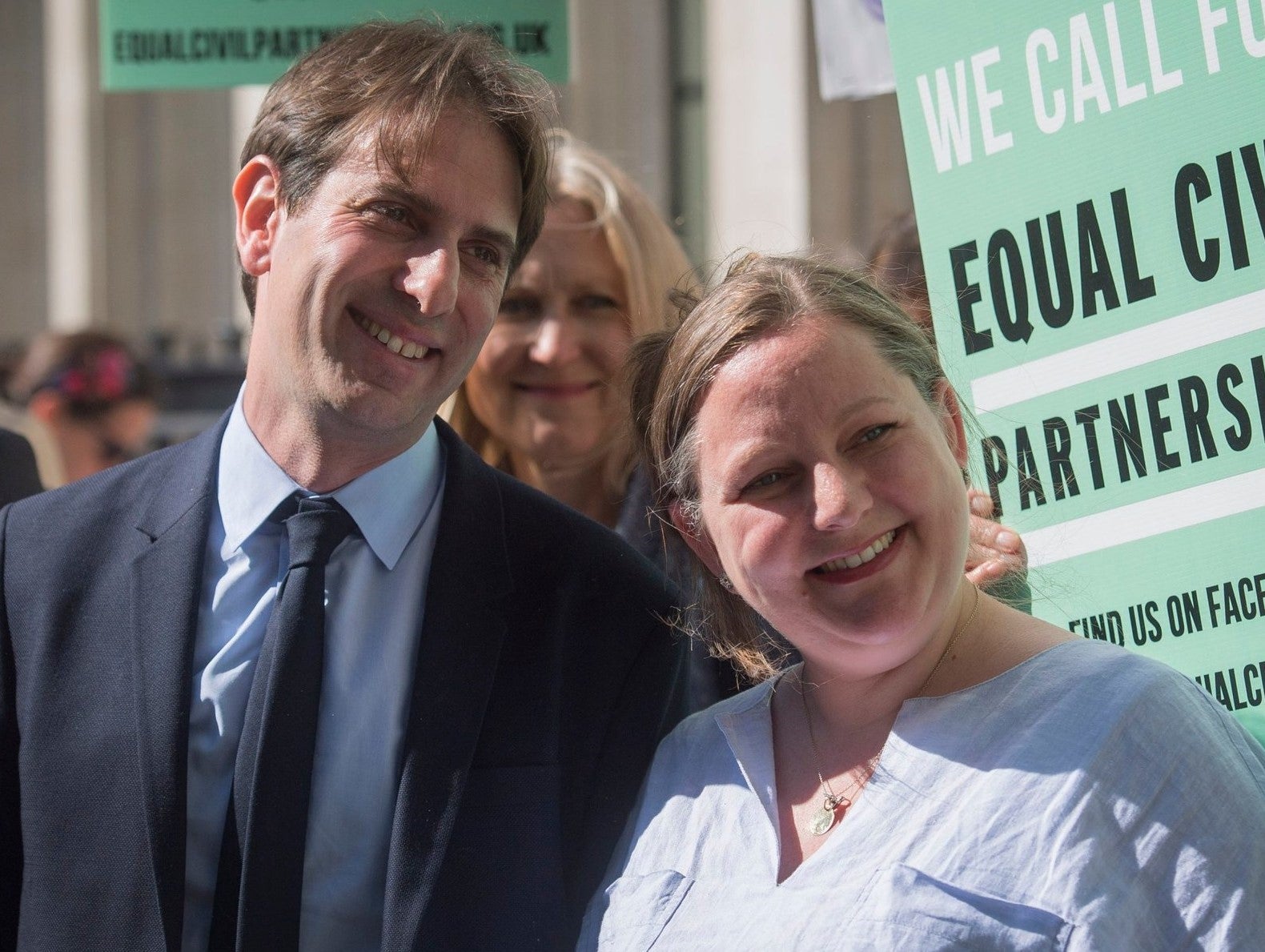Heterosexual couples can have civil partnerships, rules Supreme Court
'They've wasted taxpayers' money to defend and maintain a blatant inequality'

Your support helps us to tell the story
From reproductive rights to climate change to Big Tech, The Independent is on the ground when the story is developing. Whether it's investigating the financials of Elon Musk's pro-Trump PAC or producing our latest documentary, 'The A Word', which shines a light on the American women fighting for reproductive rights, we know how important it is to parse out the facts from the messaging.
At such a critical moment in US history, we need reporters on the ground. Your donation allows us to keep sending journalists to speak to both sides of the story.
The Independent is trusted by Americans across the entire political spectrum. And unlike many other quality news outlets, we choose not to lock Americans out of our reporting and analysis with paywalls. We believe quality journalism should be available to everyone, paid for by those who can afford it.
Your support makes all the difference.Straight couples should be able to have civil partnerships, the Supreme Court has ruled.
A judge unanimously ruled in favour of Rebecca Steinfeld, 37, and Charles Keidan, 41, from London, who wanted legal recognition of their relationship which does not have “patriarchal baggage”.
The court said the Civil Partnership Act 2004 – which only applies to same sex couples – was incompatible with the European Convention on Human Rights.
Campaigners urged the government to “seize this opportunity” and allow all people to access civil partnerships.
Mr Keidan and Ms Steinfield’s case was defeated at the Court of Appeal in February 2017, but last August they were given permission to take the case to the Supreme Court.
In a civil partnership, a couple is entitled to the same legal treatment in terms of inheritance, tax, pensions and next-of-kin arrangements as marriage.
Since March 2014, same sex couples can choose whether to enter a civil partnership or to marry, but this has not been possible for mixed sex couples.
The couple, who have two children, met in 2010 and became engaged in 2013 – but they said the “legacy of marriage” meant it was not an option for them.
Speaking outside the court, Ms Steinfield described the ruling as a “resounding victory”, saying: “Today we are a step closer to open civil partnerships to all, a measure that would be fair, popular and good for families and children across the country. We are elated.
“But to get this, far, Charlie and I have had to go toe-to-toe with the government over four long years, confronting four equal ministers across three courts. They have wasted taxpayers’ money to defend and maintain a blatant inequality.
“So please forgive us if today, alongside the satisfaction we feel, we also feel a degree of sorrow at the delays, obstruction and official resistance we’ve experienced.”
The couple’s solicitor, Louise Whitfield of Deighton Pierce Glynn Solicitors, said: “This case [...] is an important ruling for all those facing unfair treatment whilst the government debates and dithers over what to do or how to put right the discrimination that they have created, especially in cases about family life and human rights.
“The Supreme Court is clear: the government must end that discrimination and end it now.”
Responding to the ruling, Liberal Democrat equalities spokesperson Baroness Hussein-Ece said the party was “delighted”.
“This brings into law our Liberal Democrat policy on equal marriage in the UK from 2010, where we campaigned for everyone to be able to choose the option that is best suited to their own relationships and life circumstances,” she said.
“Now it’s up to the government to get on with the legislation and stop placing hurdles in the way of equality.”
Human rights campaigner and LGBT+ activist Peter Tatchell, who was also outside the court, said: “It is outrageous that the government was unwilling to legislate equality and that this couple were forced to go to court to get a basic human right – the right to be treated equally in law.
“It was never fair that same sex couples had two options, civil partnerships and civil marriages, whereas opposite sex partners had only one option, marriage.”
Join our commenting forum
Join thought-provoking conversations, follow other Independent readers and see their replies
Comments